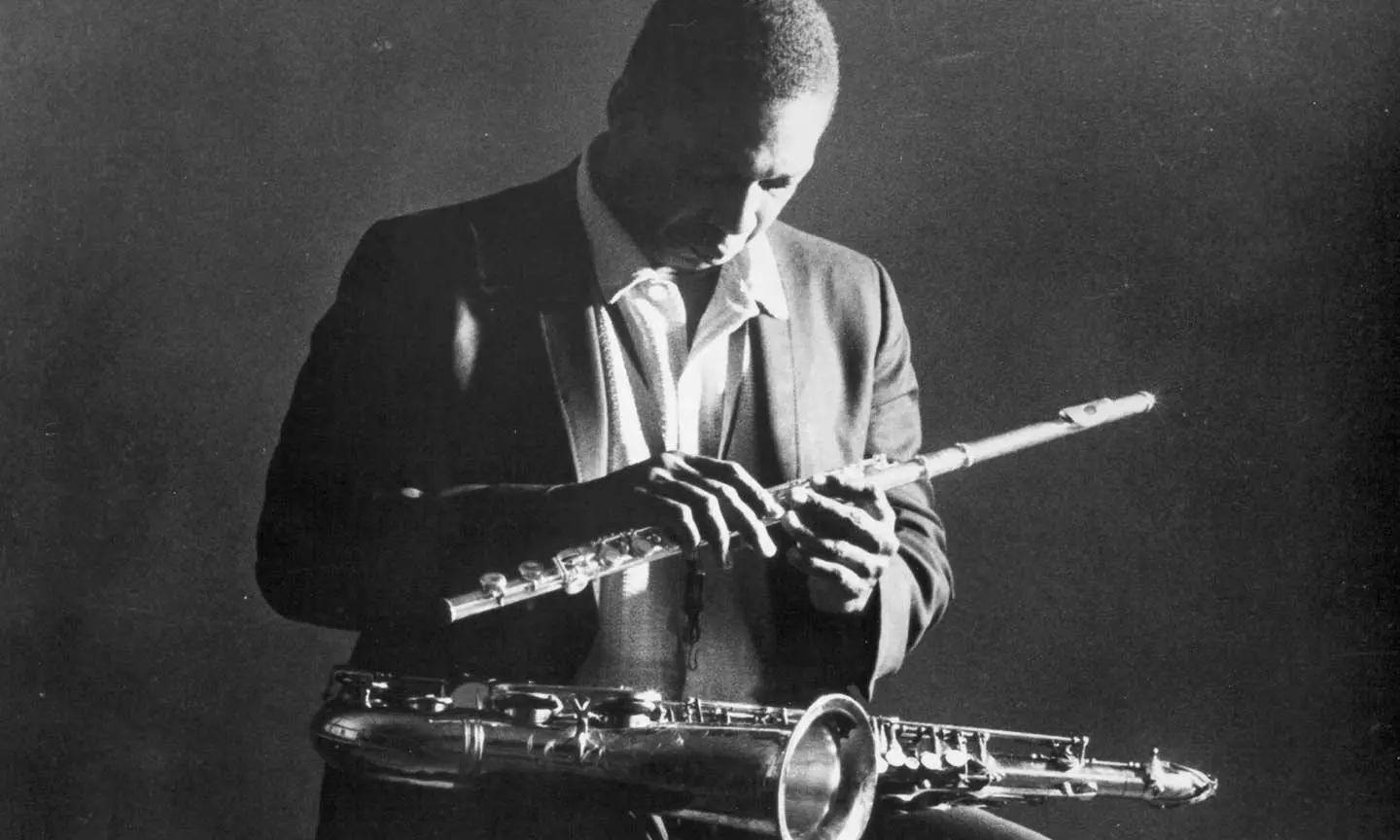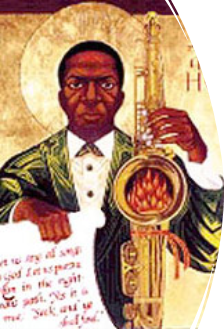By Donnie Yance
John Coltrane (1926-1967) was not just a jazz saxophonist; he was a musical pioneer, a spiritual seeker, and an inspiration to countless musicians and listeners. As someone who has immersed myself in his entire discography and studied numerous books about his life, I feel compelled to share the profound impact Coltrane has had on me both musically and spiritually.
The Dedicated Artist
Coltrane’s dedication to his craft was legendary. Like many jazz greats, he was relentless in his practice, constantly exploring new techniques, harmonies, and musical boundaries. But Coltrane pushed further than most, stretching not only the technical limits of his instrument but also the spiritual and emotional capacity of his listeners.
His journey began with collaborations with jazz giants like Dizzy Gillespie and Miles Davis in the 1940s and 1950s. During his time with Miles, Coltrane composed the hauntingly beautiful “Naima,” named after his first wife, Juanita Naima Grubbs. This intimate ballad, featured on the groundbreaking album “Giant Steps” (1959), showcases Coltrane’s ability to convey deep emotion through his music.
Spiritual Awakening and Musical Evolution
“A few years ago, I recovered faith, a faith that I had lost and now regained. I was brought up in a religious family, I had the seed of it inside me, and, at certain times, I recovered my faith. All this relates to the life one leads.” – John Coltrane
Coltrane’s found his “Telos“ and responded to God’s ultimate purpose for himself. Telos is an old Greek word, which means “Divine purpose, intent, goal; the ultimate result of an event or process.
“At that time in gratitude I humbly asked to be given the means and privilege to make others happy through music.” – John Coltrane
Coltrane’s exploration of spirituality through music reached new heights with albums like “Om” (1965). The album’s liner notes, written by Nat Hentoff, encourage listeners to approach the music without preconceptions, allowing it to expand their capacity for listening and feeling. This approach mirrors my own practice of Mederi Care, a unitive medicine that sees everything working together as one.
The Challenge and Reward of Listening
Coltrane’s later works, including “Om,” can be challenging for the uninitiated listener. However, I’ve found that dedicating time to truly listen – playing a piece multiple times, focusing on different instruments with each listen – can transform initially challenging music into something profoundly moving and addictive.
This reminds me of a scene from the movie “Mr. Holland’s Opus” (1995), where the protagonist shares his experience of initially disliking a Coltrane album, only to find himself unable to stop listening after repeated plays. This anecdote beautifully illustrates the rewards of patience and open-mindedness in music appreciation.
“We are free to be whatever we want to be. I would like to be a saint. Saints are what they are, not because their sanctity makes them admirable to others, but because the gift of sainthood makes it possible for them to admire everyone else.” – John Coltrane
As a musician myself, with albums like “Heaven Awaits” and “Cosmic Force,” I strive to embody the essence of life and divine love in my music, much as Coltrane did. His example reminds us that music can be a powerful vehicle for spiritual exploration and expression.
St. Francis states (Feast Day is October 4th), says we must listen and seek to understand, rather than to be understood. This is such a great lesson for all of us. We too often don’t give things that either challenge us, or are different, a chance. We react, rather than listen deeply try and understand, and then respond. I am talking about music, but also this applies to everything in life.
The Spiritual Legacy
Coltrane’s music continues to inspire and challenge listeners today. His quest for spiritual truth through music resonates with the words of Thomas Merton: “Powerful music, authentic spaces, thin places, help us tune our ears to truths rising from the core of reality.”
In conclusion, John Coltrane’s legacy extends far beyond his musical innovations. He showed us how art can be a pathway to spiritual awakening, how dedication to one’s craft can lead to transcendent experiences, and how music can touch the divine. As we celebrate his life and work, let us remember to listen deeply, to seek understanding, and to remain open to the transformative power of music.
About the Author:
Donald R. Yance is the founder of the Mederi Center. A Clinical Master Herbalist and Certified Nutritionist, Donnie is renowned for his extraordinary knowledge and deep understanding of the healing properties of plants and nutrition, as well as of epigenetics, laboratory medicine, oncologic pathology, and molecular oncology. He is a professional member of the American Herbalists Guild, National Association of Nutrition Professionals, Academy of Integrative Health and Medicine, and the Society for Integrative Oncology.




